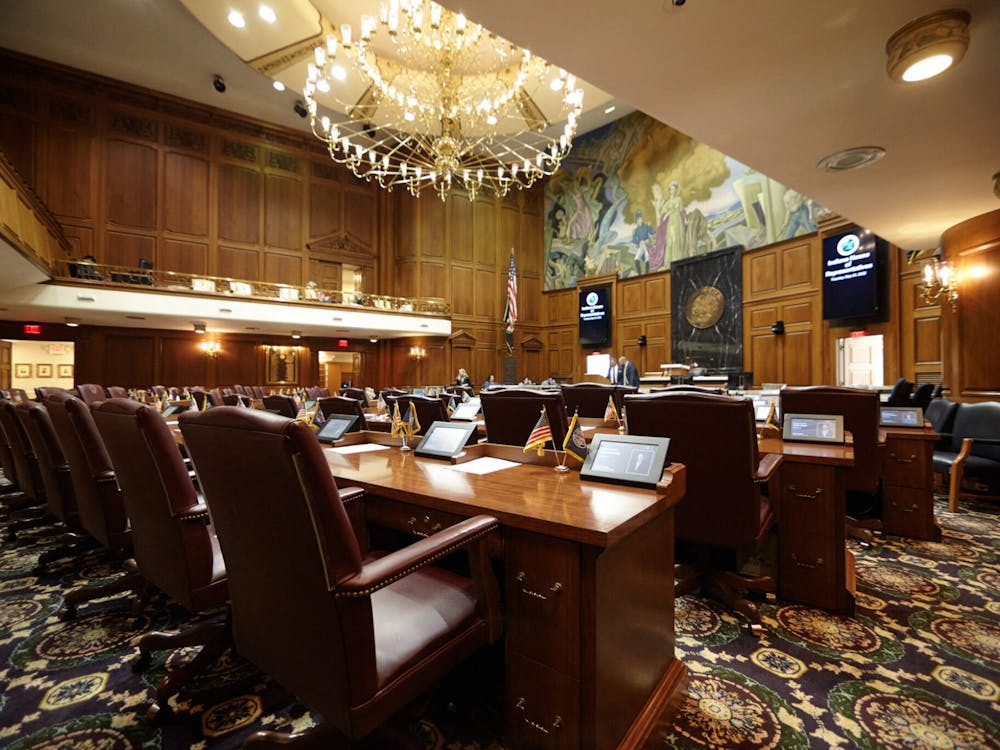TUCSON, Ariz. — The man accused of carrying out a mass shooting in Tucson faces a court hearing Monday — an early step in the case against Jared Loughner that could take years to wend its way through the criminal justice system.
Both federal and state authorities intend to prosecute Loughner in the deadly Jan. 8 shootings that wounded Rep. Gabrielle Giffords. Attorneys may push to move the case to a different venue, Loughner may use an insanity defense, and prosecutors could push for the death penalty.
The most immediate step is an arraignment scheduled Monday afternoon in Phoenix where Loughner, 22, is expected to enter a plea on federal charges against him.
The Tucson man is charged with the attempted assassination of Giffords and the attempted murder of two of her aides. He is accused of opening fire on a Giffords political event in a rampage that wounded 13 people and killed six others, including a federal judge and a 9-year-old girl who was born on Sept. 11, 2001.
Loughner later will face state charges dealing with the other victims.
Meanwhile, the Houston hospital treating Giffords said Sunday that her condition is improving daily, but gave no update on the buildup of brain fluid that has kept the Arizona congresswoman in intensive care.
A hospital statement said Giffords would continue to receive therapy "until her physicians determine she is ready for transfer" to a nearby center where she would begin a full rehabilitation program.
Giffords was flown to Memorial Hermann Texas Medical Center Hospital on Friday from Tucson. Shortly after her arrival, doctors said she had been given a tube to drain the excess fluid, which can cause pressure and swelling.
In the latest legal move, the U.S. attorney for Arizona in a court filing Sunday asked that the federal case be transferred back to Tucson for all further hearings.
The motion said all the victims and witnesses live in the Tucson area and should not be burdened by having to make a four-hour round-trip drive to Phoenix to attend court hearings. Local federal court rules also require that a crime that happens in the court's Tucson region should be tried there unless a court moves the case.
The case was moved to Phoenix because one of the six dead, U.S. District Judge John Roll, was based in Tucson and federal judges there recused themselves. All the federal judges in the rest of the state soon joined them, and a San Diego-based judge is now assigned to the case.
Paul Charlton, who worked as Arizona's U.S. attorney from 2001 to 2007 and isn't involved in the Loughner case, believes Loughner will likely mount an insanity defense. "Given what we know, that's going to be a defense," Charlton said.
Investigators have said Loughner was mentally disturbed and acting increasingly erratic in the weeks leading up to the shooting. If he pleads not guilty by reason insanity and is successful, he could avoid the death penalty and be sent to a mental health facility instead of prison.
"It appears the actual guilt or innocent of the shooting will not be difficult to prove, and his pre-shooting behavior seems to be a history of erratic behavior — issues of pre-existing mental illness," said Michael Piccarreta, a Tucson lawyer who has practiced criminal defense in federal court for 30 years.
Before the case even gets to trial, the court would have to decide whether Loughner is mentally competent. If he isn't, he would be sent to a federal facility for a minimum of four months to see if they can restore his competency. It could be up to a two-month wait just to get him into one of those facilities.
One area that will help the pace of the case is the fact that it's a relatively simple investigation. Authorities have said Loughner acted alone, and dozens of people witnessed the shooting and surveillance cameras captured it on tape.
Investigators say they have also seized writings from Loughner in which he used words like "I planned ahead," ''My assassination" and "Giffords."
Pima County Attorney Barbara LaWall has the discretion to decide whether to seek the death penalty against Loughner in the state case, while the federal decision on whether to seek the death penalty rests with Arizona U.S. Attorney Dennis Burke and Attorney General Eric Holder, Charlton said. Prosecutors haven't signaled whether they would pursue the death penalty, but experts say all signs point toward that.
Defense lawyers could ask that the case be moved out of Arizona by arguing that extensive negative publicity would make it impossible for Loughner to get a fair trial.
There was so much speculation that San Diego would ultimately be the home for the trial that federal authorities were prompted to issue a statement last week denying the reports and saying it's way too early in the case to discuss. The presiding over the case works out of San Diego, and Loughner's court-appointed lawyer, Judy Clarke, is based there as well.
Clarke has not responded to requests seeking comment. She is one of the top lawyers in the country for defendants facing prominent death penalty cases, having represented clients such "Unabomber" Ted Kaczynski and Olympic bomber Eric Rudolph. She has a reputation for working out plea deals that spare defendants the death penalty, as was the case for Rudolph and Kaczynski.




